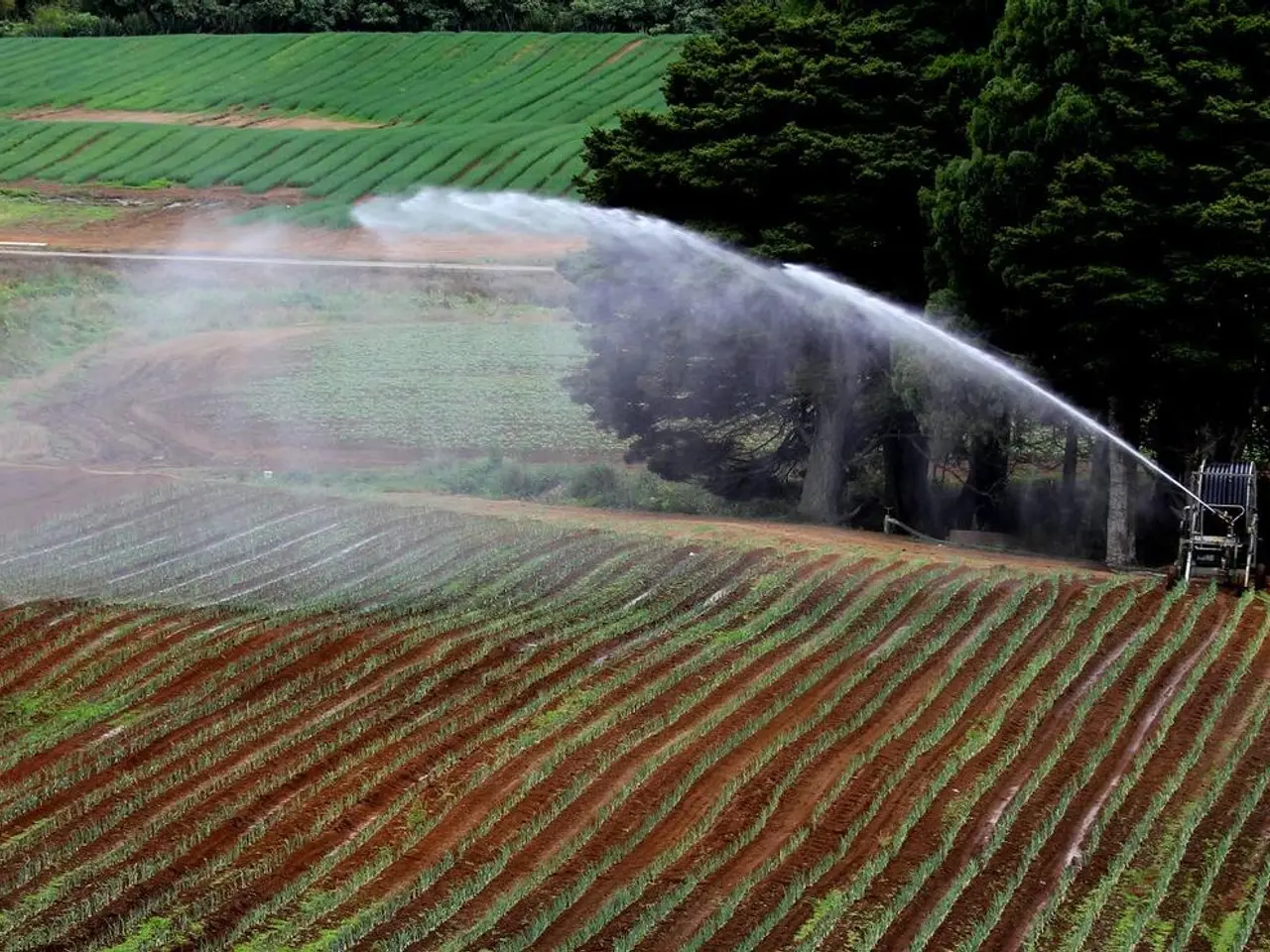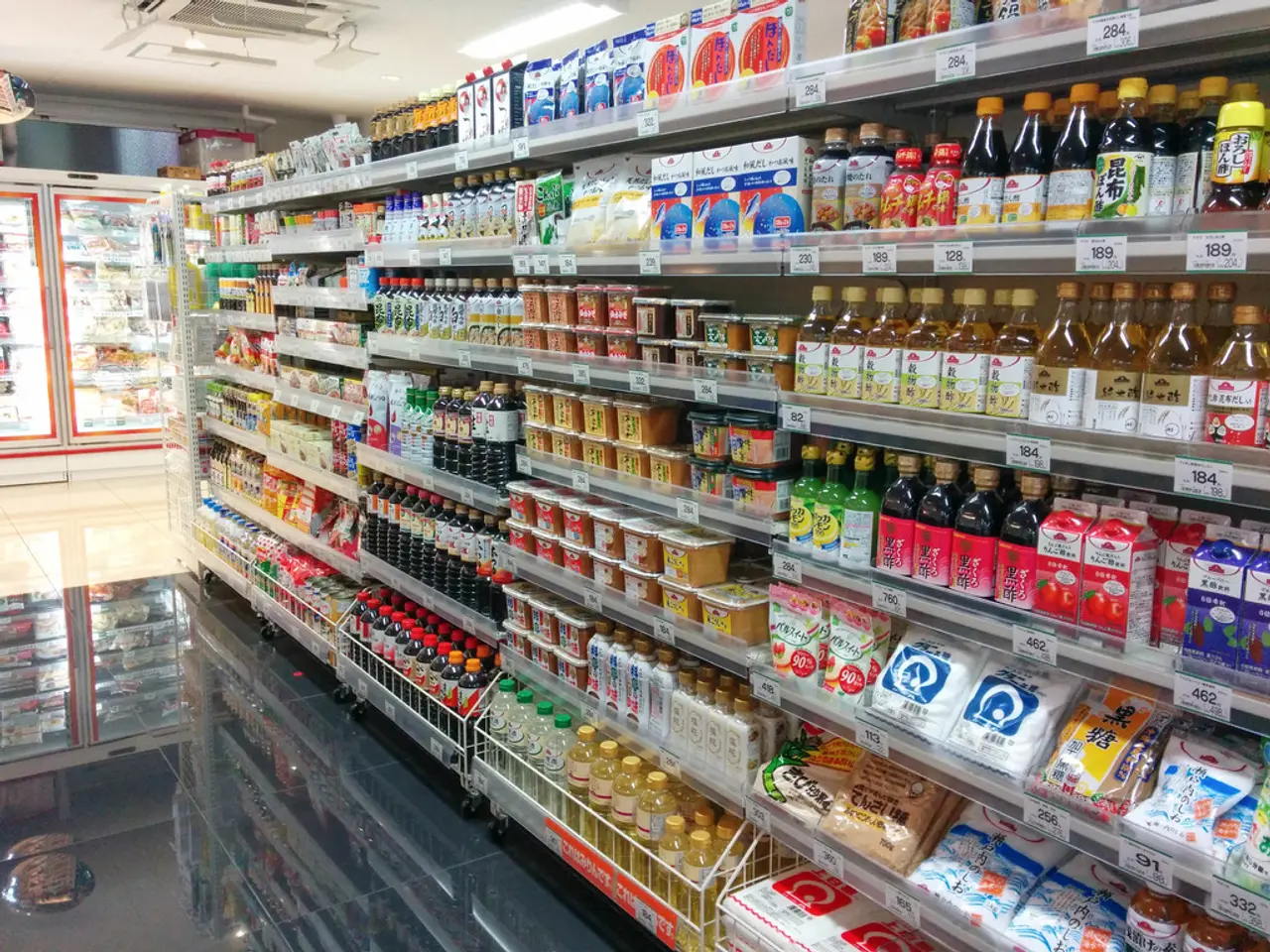Escalating energy costs: surging prices for electricity and gas from 2022-2025
In the wake of geopolitical disruptions and the transition towards renewable energy, Germany has been grappling with an energy crisis that has led to significant price increases in electricity, gas, and other energy sources.
The crisis, which intensified in 2021 and 2022, is primarily attributed to Russia's invasion of Ukraine and the resulting sanctions and embargoes on Russian energy supplies, particularly natural gas and oil. Germany's heavy reliance on Russian energy imports (nearly 40% of EU gas came from Russia before the war) has left the country vulnerable to supply cuts and disruptions.
Moreover, Germany's simultaneous phasing out of nuclear and coal power has increased its reliance on expensive natural gas and intermittent renewables like solar and wind, contributing to higher electricity prices and energy insecurity. The costly transition to renewables requires significant investment in new grid infrastructure to accommodate decentralized and variable power generation, with estimates of 200-300 billion euros in needed upgrades.
To address these challenges, several key solutions have been adopted:
- Diversifying energy sources to reduce dependence on Russian fossil fuels by importing LNG from the US, Norway, and Qatar, as well as accelerating the transition to renewable energy.
- Implementing the EU's REPowerEU Plan, which prioritizes energy savings, rapid expansion of renewables, investments in energy infrastructure and efficiency, and binding targets to ensure gas storage levels are sufficient to withstand supply shocks.
- Encouraging solidarity and resource sharing among EU member states to stabilize energy markets and prevent shortages during high demand periods.
- Investing in grid modernization and smart grid technologies to better integrate renewable energy, improve controllability, and reduce the costs associated with renewable intermittency.
The energy crisis has also led to a rise in energy prices for households and businesses. The average electricity price in January 2022 was almost 13% higher than the previous year, with a household consuming 3,500 kWh paying an average of 36.10 cents/kWh. The high prices of heating oil, electricity, and gas have multiple causes, including increased global demand, political framework conditions, and climatic reasons.
However, there are ways for consumers to mitigate these costs. Consumers can reduce their energy costs in the short term by reducing their consumption and switching to a favourable gas or electricity provider. Reliable electricity and gas providers can be recognized by short contract terms, short cancellation periods, no advance payment, monthly payments, clear and transparent information on their website, and positive customer reviews on comparison portals.
In addition, the federal government has implemented several relief packages during the energy crisis to cushion the impact of rising energy prices. Measures include higher heating cost subsidies for low-income households, a gas and electricity price cap in 2023, taking over gas bills in December 2022, a one-time payment of 300 € for each taxable person and pensioner, a reduction in energy tax for 3 months to lower fuel prices, the earlier abolition of the EEG surcharge on 1 July 2022, a one-time bonus of 100 € for each child, a particularly affordable ticket for 9 € for public transport in the summer of 2022, and since May 2023 a nationwide 49 €-ticket.
For those considering a heating modernization, financing is often needed. A modernization loan is often an option. The state supports these measures with the Federal Funding for Efficient Buildings (BEG). The installation of a new efficient heating system saves a lot of energy in the long run and leads to a reduction in heating costs.
The Energy Mediation Office, funded by the associations of the energy industry and the Federal Association of Consumer Centers, is available to help consumers resolve disputes with energy supply companies out of court. The office also provides information on funding opportunities suitable for the consumer's home, as well as tips on insulation measures, heating optimization, thermal insulation, and the use of renewable energies.
The energy advisors also provide information on favourable offers for electricity and gas, which can be found after entering a few data. Experts from the economy, politics, and consumer protection see it similarly. They agree that prices could continue to rise in 2025, but efforts are being made to reduce Europe's dependence on Russian gas supplies and to strengthen the powers of the Federal Network Agency to examine unsound business practices of energy suppliers.
In conclusion, energy will remain expensive in 2025, exactly how expensive is uncertain. However, there are steps consumers can take to reduce their energy costs, and the federal government is implementing relief packages to cushion the impact of rising energy prices. The energy crisis is a complex issue, but efforts are being made to address it and to ensure a more secure and affordable energy future for Germany.
[1] REPowerEU Plan
[2] Deutsche Welle
[3] Bundesregierung
[4] European Commission
- As Germany continues to transition its energy sector, the finance industry plays a crucial role in securing investments for grid modernization and renewable energy expansion, as states like the US, Norway, and Qatar export liquefied natural gas, reducing Germany's dependence on Russian energy sources.
- In the other industries, such as construction, energy-efficient practices and heating modernization are being promoted to reduce energy consumption and associated costs, aligning with Germany's renewable energy goals and the REPowerEU Plan.




